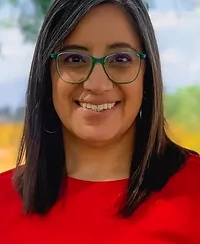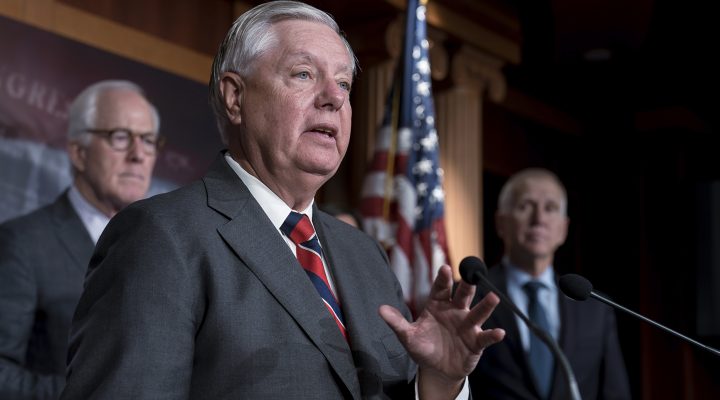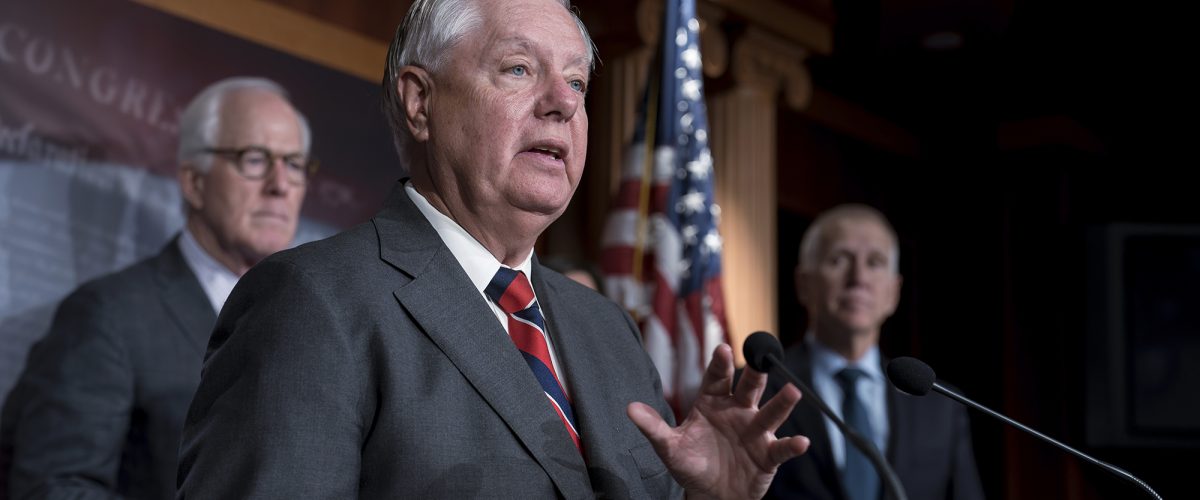The border security amendment U.S. Senate Republicans tried to attach to a foreign aid bill would have been lethal to migrants seeking asylum in the U.S., said Marisa Limón Garza, executive director of the Las Americas Immigrant Advocacy Center in El Paso.
“When you say, ‘border security,’ it means death. There is no mincing words. I’m not being hyperbolic. These are facts,” Limón Garza said during a virtual news briefing organized by the #WelcomewithDignity campaign.

Marisa Limón Garza
Conservatives want to increase migrant detentions, to codify and expand deportations to Mexico or countries of origin, to terminate most types of humanitarian parole, to make it harder for asylum seekers to prove a credible fear drove them to migrate and to deny them court access.
While their counterparts in the House passed legislation along these lines earlier this year, Senate Republicans were unable to attach those provisions to President Biden’s supplemental aid bill for assistance to Israel, Taiwan and Ukraine. The bill was subsequently voted down Dec. 6 along party lines.
But migrant advocates expressed no doubts that congressional Republicans will continue their attempts to decimate asylum rights.

Robyn Barnard
“We shouldn’t confuse what Republicans are asking for in terms of changes to our asylum policies as equaling border security,” said Robyn Barnard, director of refugee advocacy at Human Rights First. “It’s really about gutting our refugee protection system and reducing the ways people can come in a safe and legal manner, which would only make things worse along the border.”
And it won’t ease crowding or illegal crossing at the border, she said. “People will still come, but without safe options to seek asylum or access safety. They’ll be much more likely to come in other irregular immigration pathways which are not safe nor humane.”
The journey for migrants, however, already is perilous. According to a United Nations report, the U.S.-Mexico border is the deadliest land route for migrants in the world, with no fewer than 686 deaths or disappearances recorded in 2022. The U.N. added that nearly half those fatalities were documented in the Sonoran desert, which straddles Mexico and Arizona, and the Chihuahuan desert, which stretches from Mexico into portions of Arizona, New Mexico and Texas.
“The impacts on the families left behind to search endlessly for a lost loved one are profound,” said Marcelo Pisani, regional director for South America with the U.N.’s International Organization for Migration.
The El Paso area has been the site of many of those fatalities, Limón Garza added. “It’s important to know that this year where we’ve seen the most deaths in our sector than any year before. And so that’s a new reality that we haven’t faced that we are now wrestling with.”
Further dangers lurk in U.S. asylum policies that force migrants to wait for weeks or months in Mexico as their cases play out, said Ray Rodriguez, a Cuban immigrant who waited more than a year to be granted asylum after first applying at the southern border in 2019.
“We were subjected to the violence of the cartels, the corruption of the Mexican police and the Mexico authorities.”
“I witnessed the horrors that were inflicted on the people that were applying for asylum because there’s no safety when we’re sent back to Mexico,” said Rodriguez, a professor who fled political and anti-LGBTQ persecution in Cuba. “We were subjected to the violence of the cartels, the corruption of the Mexican police and the Mexico authorities.”
Those conditions have continued under the Biden administration, which has implemented rules requiring asylum seekers to seek safety in other nations before applying to the U.S., and to use an unreliable smartphone app to make appointments for asylum hearings. They are then required to wait in Mexico as the process unfolds.
Rodriguez said he was granted asylum during the Trump era because his ability to speak English enabled him to understand and correctly answer questions from U.S. officials about the threat he faced if returned to Cuba. “I was able to advocate for myself, which is something a lot of people are not able to in those situations because they don’t know the systems, they don’t know how it works, and then they cannot express the things that they went through.”
Republicans in Congress need to understand that asylum seekers aren’t coming to the U.S. border for superficial reasons or to take jobs from Americans, but to escape physical brutality or economic deprivation in their home nations, Rodriguez said. “We just want a secure, safe life, a chance of making something of our lives. I live in Washington, D.C., right now where I work for a nonprofit for homeless youth in the city.”
Still more danger for asylum seekers looms in Texas, where Gov. Greg Abbott has vowed to sign legislation allowing local and state law enforcement officers to arrest migrants and requiring judges to order migrants deported to their countries of origin, Limón Garza said.
She described the legislation as “inherently racist, xenophobic and it certainly will lead to racial profiling and even deportation in the struggle between states’ rights and federal responsibility.”

Mazie Hirono
U.S. Sen. Mazie Hirono, D-Hawaii, warned against conservative efforts to insert permanent asylum policy changes into legislation intended for immediate issues, such as foreign aid to American allies.
The tactic is a distraction from working for bipartisan solutions to comprehensive immigration reform, said Hirono, an immigrant from Japan. “It’s just going to create further chaos in the asylum system, which is already pretty challenged. That is why I think we should continue to push for comprehensive immigration reform to a broken immigration system that Republicans and Democrats alike acknowledge.”
But Guerline Jozef, executive director of the Haitian Bridge Alliance, chastised conservatives for taking a cynical approach to an issue that affects so many lives.
“We want to highlight that Republicans are not negotiating in good faith and once again are trying to distract from the issue at hand by taking cheap shots at people who are fleeing violence,” she said. “They do not have serious solutions or a thorough understanding of the issue at hand. They are simply trying to inject a poison pill to secure cheap political points.”








































































